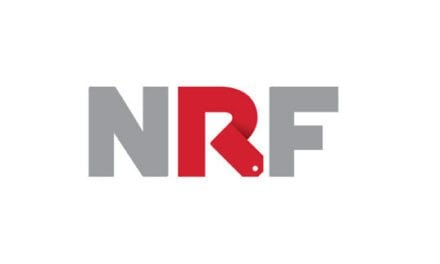In early November 2019, NACS conducted the NACS Innovation Leadership Program at MIT, a program for top-level executives who want to drive innovation in their organizations and the industry. The new educational program took place at the Massachusetts Institute of Technology’s Sloan School of Management. It’s the first NACS program of its kind at MIT, and it was made possible by the association’s partnership with PDI, Shell and Gilbarco Veeder-Root.
The NACS leadership program combined research-based management frameworks with practical, hands-on experiences and offers ample networking opportunities for attendees. The curriculum covered operating models, supply chain, customer experience, people engagement and culture change. The courseware integrated lessons and tools from various areas, including business strategy, design thinking and digitalization. Attendees had the opportunity to apply those methods to their own companies. The initiative builds upon the phenomenal entrepreneurial track record of MIT’s alumni, who have collectively created 30,000 companies over the years with more than 4.6 million employees and nearly $2 trillion in annual revenues.
FMN asked Sid Gaitonde, SVP and GM, Global Logistics Solutions at PDI Software, for his feedback on the programs goals, PDI’s perspective on those goals and how well the program actually worked to fulfill its mission. PDI provides retailers and petroleum wholesalers with enterprise software that enables them to grow topline revenue, optimize operations and unify their business across the entire value chain.
FMN: Why did PDI decided to become a partner?
Gaitonde: Our company advocates for executive development, internally and across the convenience and fuel retailing industries. We believe it is vital to support the next generation of innovators and industry leaders through initiatives such as the NACS Innovation Leadership Program at MIT.
Operating with high integrity and credibility are two of our guiding principles at PDI. We aim for excellence in everything we do and look to align ourselves with others that think and act the same way. These values align with the NACS Innovation Leadership Program at MIT, which establishes a foundation for building an “innovation culture.” Combining research-management frameworks with real-world experiences and networking opportunities for the future leadership of the convenience retail industry is unique to this program.
Addressing industry challenges and openly discussing ways to solve them is how we can help create future leaders who are focused on innovation. By sharing the knowledge gleaned from the program, attendees can inspire their organizations to pursue strategic change and nurture potential leaders as well.
FMN: How did the program address the goal of recognizing and overcoming models that inhibit innovation?
Gaitonde: Some traditional business and leadership models inhibit innovation because they see technology as a constraint, or they don’t consider it integral to an innovative culture. The program’s core curriculum integrates technology with leadership to overcome this.
A significant advantage of the program is that it leveraged MIT’s incredible entrepreneurial track record. A 2015 study determined that MIT alumni have created over 30,000 companies with over 4.6 million employees and nearly $2 trillion in annual revenues – which would be the world’s 10th largest GDP if measured as a country.
FMN: How did the program address the goal of leveraging the principles and processes of design thinking?
Gaitonde: The NACS Innovation Leadership Program gave participants access to the faculty’s 200 years of combined industry experience and problem-solving methods. Embracing the “design thinking” process by looking at the root cause of challenges and how to effect (positive) change empowered participants to think about how the convenience retail industry can sustainably evolve, innovate and thrive in the coming decades.
FMN: How did the program address the goal of identifying choices for responding to disruptive competition?
Gaitonde: Disruption impacts every industry, and convenience retail is no exception. The research-based innovation model at MIT enabled participants to analyze business-critical issues relating to labor, disruptive technology and market forces. It also gave them the chance to discuss how organizational structures can be reimagined and encourage an innovation culture across the enterprise.
FMN: How did the program address the goal of developing digital business models?
Gaitonde: The digital ecosystem is changing faster than higher education can adapt and prepare the next generation of convenience retail leaders. These leaders need the skills to manage digitized businesses using design-adaptive operating models that enable them to quickly respond to disruptive market forces. The course at MIT shows how future leadership programs can bridge this knowledge gap by leveraging academic expertise, the voice of the industry (NACS), and the support of industry leaders such as Shell, Gilbarco Veeder-Root and PDI.
FMN: How did the program address the goal of applying innovative methods for designing work and operating models that engage employees/create competitive advantage?
Gaitonde: Attendees examined different operating models that improve culture, inspire employees, and offer their companies a competitive edge. Convenience store executives can’t exclusively rely on new products, services, or technology to differentiate their companies in a hyper-competitive marketplace. They must also optimize workforce management and employee engagement to ensure operational success.
FMN: How did the program address the goal of experiencing MIT’s entrepreneurial innovation ecosystem?
Gaitonde: The program immersed participants in MIT’s entrepreneurial innovation ecosystem by bringing together industry thought leaders to collaborate on solving critical issues. The program also allowed participants to expand their network and develop relationships with today’s industry leaders.










